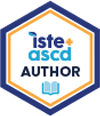

Event Information
Introduction & Session Goals (5 minutes)
Content:
* Brief introduction to the presenters and the book The Savvy EdTech Leader.
* Overview of session objectives and key takeaways.
Engagement:
*Ask attendees to briefly share their biggest challenges in their EdTech leadership roles using an interactive poll (e.g., Mentimeter).
*Highlight audience questions and concerns that will be addressed during the session.
Process:
* Poll responses displayed in real-time to set the stage for discussion.
The Evolving Role of District Technology Leaders (10 minutes)
Content:
* Presentation of key responsibilities of EdTech leaders: cybersecurity, data privacy, procurement, network systems, and professional development.
* Highlighting the changing landscape and the imperative nature of technology leadership in K-12 districts.
Engagement:
* Quick reflection: Ask participants to write down (or input via a tool) one key area they feel most challenged by.
* Peer-to-peer interaction: In pairs or small groups, participants discuss their challenges.
Process:
* Small group discussions with reporting back to the larger group.
Navigating Legal, Budgetary, and Organizational Challenges (10 minutes)
Content:
* Delving into the legal, financial, and organizational complexities of the role.
* Sharing real-world examples of successful navigation from the presenters’ expertise.
Engagement:
* Case study discussion: Present a real-world scenario about navigating a budgetary or legal challenge. Attendees collaborate to propose solutions.
Process:
* Use of breakout groups for quick collaboration and problem-solving, then share key takeaways with the whole group.
EdTech Leadership: Blending Technical Skills and Inspirational Leadership (10 minutes)
Content:
* Explore the dual essence of EdTech leaders as both technocrats and inspirational leaders.
* Insights on harnessing soft skills—charisma, confidence, and communication—that set exceptional leaders apart.
Engagement:
* Self-reflection exercise: Attendees rank their strengths and areas for growth using an online assessment tool.
* Peer feedback: Participants exchange thoughts on how they can further develop one of these soft skills.
Process:
* Guided individual assessment, followed by peer-to-peer discussions.
Building Influence and Elevating Your Career (10 minutes)
Content:
*Strategies to increase leadership influence and advance in an EdTech career.
* Insights from The Savvy EdTech Leader on leveraging influence within districts and across the educational landscape.
Engagement:
* Interactive brainstorming: Using an online board (e.g., Jamboard or Padlet), participants contribute strategies they’ve used to boost influence in their roles.
* Group discussion on shared strategies and ideas.
Process:
* Participants post their ideas on a collaborative tool, enabling a visual and dynamic exchange of insights.
Addressing Standardization Challenges Across Districts (5 minutes)
Content:
* Discussion on the challenges posed by the lack of standardized titles and responsibilities across districts.
* Insights from presenters' 120+ years of combined experience.
Engagement:
* Open Q&A with the audience about their experiences with this challenge in their districts.
Process:
* Use live questions through a platform or directly from participants in the room.
EdTech Leadership Self-Assessment Tool (5 minutes)
Content:
* Introduction of the online EdTech Leadership self-assessment tool.
* Explanation of how to use the tool for continuous improvement aligned with CoSN, CETL, and ISTE standards.
Engagement:
* Attendees are guided through a quick sample assessment and receive personalized feedback.
Process:
* Device-based activity where participants begin their assessment during the session.
Closing & Action Steps (5 minutes)
Content:
* Summarize key takeaways from the session.
* Provide action steps for participants to implement their learning in their districts.
Engagement:
* Participants will write down (or input digitally) one actionable goal they’ll implement in the next 30 days.
Process:
* Individual reflection followed by sharing their goals with peers or in an online group chat for accountability.
Frequent Engagement Tactics:
*Device-based polls and assessments.
*Peer-to-peer discussions and group activities.
*Collaborative online tools (Padlet, Jamboard) for brainstorming and sharing strategies.
*Case studies and real-world examples for applied learning.
This plan ensures a balanced approach between content delivery, interaction, and practical application, making the session dynamic and participatory.
1. Consortium for School Networking (CoSN)
Article: "The CoSN Framework of Essential Skills of the K-12 CTO"
https://www.cosn.org/Framework
Summary: This article outlines the essential skills required of Chief Technology Officers (CTOs) in K-12 schools, focusing on areas like leadership and vision, understanding of educational environments, and managing IT infrastructure. It directly supports the session’s exploration of the evolving roles of district-level EdTech leaders.
Article: "Cybersecurity Considerations for K-12 Leaders"
https://www.cosn.org/cybersecurity/considerations/
Summary: This resource provides specific cybersecurity strategies for K-12 IT leaders, including risk management and securing digital learning environments. It supports the session’s focus on cybersecurity as an essential responsibility for EdTech leaders.
2. International Society for Technology in Education (ISTE)
Article: "ISTE Standards for Education Leaders"
https://www.iste.org/standards/iste-standards-for-education-leaders
Summary: This article presents the ISTE Standards for Education Leaders, emphasizing how leaders should foster a shared vision, empower students and staff, and promote digital citizenship. This directly aligns with the session’s goals of developing EdTech leaders’ influence and soft skills like communication and charisma.
Article: "Why K-12 Leaders Need to Be Learning Engineers"
https://www.iste.org/explore/leadership/why-k-12-leaders-need-be-learning-engineers
Summary: This article discusses the need for K-12 technology leaders to act as "learning engineers," integrating technology to solve educational challenges. It reinforces the session’s discussion on the dual roles of EdTech leaders as technocrats and inspirational leaders.
3. Future Ready Schools
Article: "Leadership in the Age of Digital Learning"
https://futureready.org/leadership/
Summary: This article outlines the essential qualities of digital leadership and the infrastructure needed to support future-ready schools. It addresses how K-12 leaders can manage technology systems and ensure equitable access to digital resources—key topics in your session.
Article: "Empowering Leaders Through Professional Learning"
https://futureready.org/professional-learning/empower-leaders/
Summary: This piece emphasizes the importance of ongoing professional development for education leaders. It aligns with the session’s goal of using self-assessment tools like CoSN, CETL, and ISTE standards to support continuous growth for EdTech leaders.
4. K-12 Cybersecurity Resource Center
Article: "The State of K-12 Cybersecurity: 2022 Year in Review"
https://k12cybersecure.com/2022/
Summary: This annual report examines the trends, breaches, and vulnerabilities in K-12 cybersecurity over the past year. It supports the session’s emphasis on cybersecurity as an urgent and growing responsibility for EdTech leaders, offering case studies and real-world examples.
Article: "Building a Culture of Cybersecurity in K-12 Schools"
https://k12cybersecure.com/building-a-culture-of-cybersecurity/
Summary: This article discusses how K-12 technology leaders can foster a culture of cybersecurity across their districts. It aligns with the session’s focus on leadership in network security, offering strategies for engaging staff and students in cybersecurity practices.
5. K-12 Blueprint
Article: "The Role of the CTO: Leadership Beyond IT"
https://www.k12blueprint.com/news/role-cto-leadership-beyond-it
Summary: This article explores how CTOs must go beyond managing IT and become visionary leaders in their districts. It supports the session’s exploration of the dual nature of EdTech leadership—balancing technical skills with soft skills like communication and influence.
Article: "K-12 Procurement: Strategies for Technology Leaders"
https://www.k12blueprint.com/news/k-12-procurement-strategies
Summary: This article provides guidance for K-12 technology leaders on procurement strategies, ensuring they make cost-effective and sustainable choices for their districts. It directly supports the session’s focus on procurement as one of the key responsibilities of EdTech leaders.






